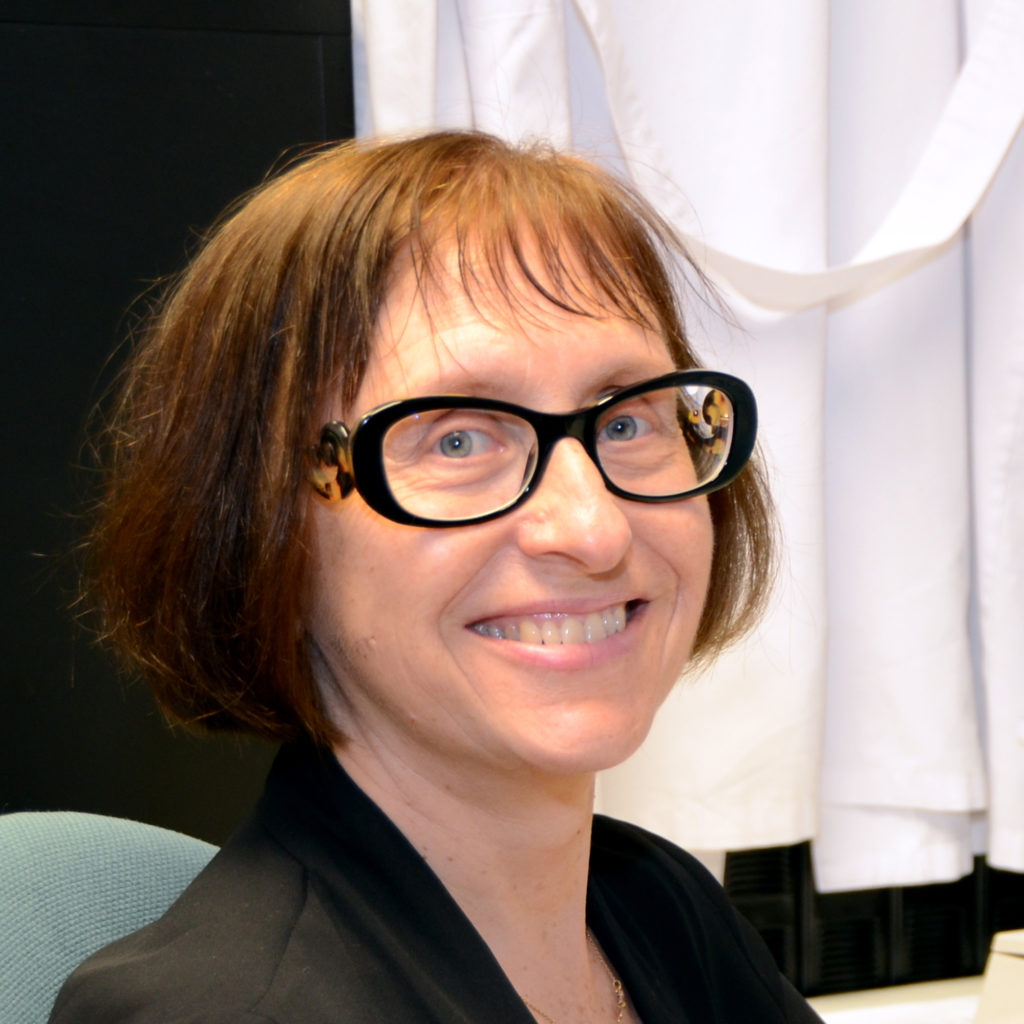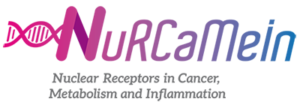Dc. Caelles Group
Nuclear Receptors in Inflammation and Diabetes
Dc. Maria del Carme Caelles Franch
Contact:
Carme Caelles has a PhD in Pharmacy from the University of Barcelona. In 1997, after her postdoctoral training in the groups of Michael Karin in UCSD (La Jolla, California, USA) and Alberto Muñoz at IIB “Alberto Sols”-CSIC (Madrid, Spain), she joined the Department of Biochemistry and Physiology at the School of Pharmacy and Food Sciences from the University of Barcelona as a research group leader. Her research is focused on the molecular mechanisms responsible for the mutual and negative cross talk between the nuclear receptors (NRs) and the c-Jun N-terminal kinase pathway (JNK), and the physiopathological actions mediated by this interaction. Her work has demonstrated the relevance of this cross talk in the anti-inflammatory and/or anti-diabetic action of some of these nuclear receptors and their ligands.

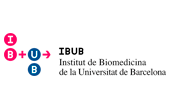
About Us
- Principal Investigator:
Maria del Carme Caelles Franch - Doctoral Fellows:
Joan Carles Rodríguez
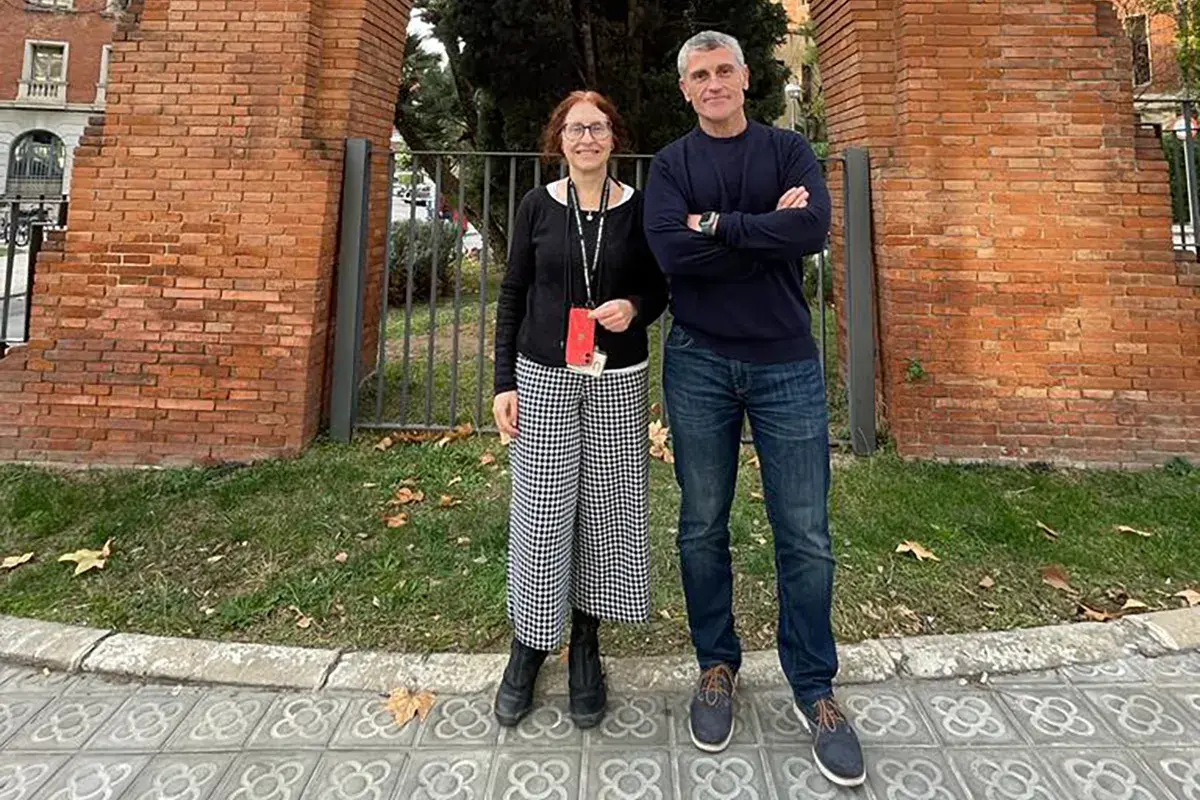
What Do We Research?
Inflammation is a defense response of the organism to stimuli, whether exogenous or endogenous, capable of disturbing the homeostasis of the organism. However, an exacerbated or chronic inflammatory response can lead to the development of pathologies such as septic shock or type 2 diabetes, respectively. Dysfunction in the inflammatory response is usually due to deregulation of the signaling pathways involved in it, such as the JNK pathway. For this reason, the JNK pathway is a front of pharmacological intervention to combat diseases that have activating dysfunctions of the inflammatory response as a component.
The c-Jun N-terminal kinase (JNK) belongs to the mitogen-activated protein kinase (MAKP) family of serine/threonine protein kinases involved in signal transduction. Among other stimuli, the JNK pathway is triggered by pro-inflammatory cytokines. Upon activation, JNK phosphorylates and positively regulates the activity of transcriptional regulators crucial for the inflammatory response, such as the activator protein (AP)-1 complex. In addition, activated JNK also phosphorylates the insulin receptor substrate (IRS)-1/2 and thereby, inhibits its interaction with the insulin receptor (IR). Consequently, JNK pathway activation promotes the down-regulation of the IR signaling, an action that in a chronic pro-inflammatory scenario promotes insulin resistance, which is an early trait in the development of type 2 diabetes. On the other hand, a set of NRs, which includes the glucocorticoid receptor (GR) and the peroxisome proliferator activated receptors (PPARs), has anti-inflammatory properties upon ligand activation. Our major contributions in the field have been to demonstrate that both NRs, upon hormone binding, are able to inhibit JNK activation in response pro-inflammatory stimuli. For the GR, we have shown that JNK inhibition is a mechanism to prevent AP-1 activation and, hence, to block the induction of the inflammatory response transcriptional program. In case of the PPARs, we have shown that JNK pathway inhibition mediates the insulin-sensitizing action of the thiazolidinedione group of drugs and its receptor, the PPAR-g.
We have generated a transgenic mouse model able to activated JNK in a Cre recombinase dependent manner. In these mice we have demonstrated that JNK activation in pancreatic insulin secreting cells blocks insulin secretion in response to increases in glycaemia. This blockade is due to the JNK-induced inhibition of the IR signaling that blunts insulin auto/paracrine action in Langerhans islets. We plan to use these mice to further study the JNK pathway role(s) on insulin action(s) in different tissues and conditions and in the response to anti-diabetic drugs. In addition, this mouse model will allow us to study the role of JNK activation in the development of resistances to therapy which are relevant in clinics, such as the glucocorticoid resistance.
Publications
- Jiménez-Panizo A, Alegre-Martí A, Tettey TT, Fettweis G, Abella M, Antón R, Johnson TA, Kim S, Schiltz RL, Núñez-Barrios I, Font-Díaz J, Caelles C, Valledor AF, Pérez P, Rojas AM, Fernández-Recio J, Presman DM, Hager GL, Fuentes-Prior P, Estébanez-Perpiñá E Nucleic Acids Res. 2022;50(22):13063-13082.
-
Sevilla LM, Jiménez-Panizo A, Alegre-Martí A, Estébanez-Perpiñá E, Caelles C, Pérez PInt J Mol Sci. 2021 Sep 17;22(18):10049.
-
Carbó J, Leon T, Font-Díaz J, de la Rosa JV, Castrillo A, Picard F, Staudenraus D, Huber M, Cedó L, Escolà-Gil JC, Campos L, Bakiri L, Wagner E, Caelles C, Stratmann T, Ginderachter JV, Valledor AFCancer Res 2021;81:968-985.Font-Díaz J, Jiménez-Panizo E, Caelles C, Vivanco MdM, Pérez P, Aranda A, Estebanez-Perpiñá E, Castrillo A, Ricote M, Valledor AFSem Cancer Biol 2021;73:58-75Matalonga J, Glaria E, Bresque M, Escande C, Carbó JM, Kiefer K, Vicente R, León TE, Beceiro S, Pascual-García M, Serret J, Sanjurjo L, Morón-Ros S, Riera A, Paytubi S, Juarez A, Sotillo F, Lindbom L, Caelles C, Sarrias MR, Sancho J, Castrillo A, Chini EN, Valledor AFCell Rep 2017;18:1241-55Lanuza-Masdeu J, Arévalo MI, Vila C, Barberà A, Gomis R, Caelles CDiabetes 2013;62:2308-17Díaz-Delfín J, Morales M, Caelles CDiabetes 2007;56:1865-1871Bruna A, Nicolàs M, Muñoz A, Kyriakis JM, Caelles C.EMBO J. 2003;22:6063-6044Caelles C, González-Sancho JM, Muñoz AGenes Dev. 1997;11:3351-3364Helmberg A, Auphan N, Caelles C, Karin MEMBO J. 1995;14:452-60
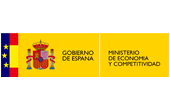

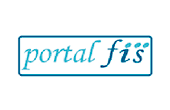
This website uses cookies so that we can provide you with the best user experience possible. Cookie information is stored in your browser and performs functions such as recognising you when you return to our website and helping our team to understand which sections of the website you find most interesting and useful.
Strictly Necessary Cookie should be enabled at all times so that we can save your preferences for cookie settings.
If you disable this cookie, we will not be able to save your preferences. This means that every time you visit this website you will need to enable or disable cookies again.
